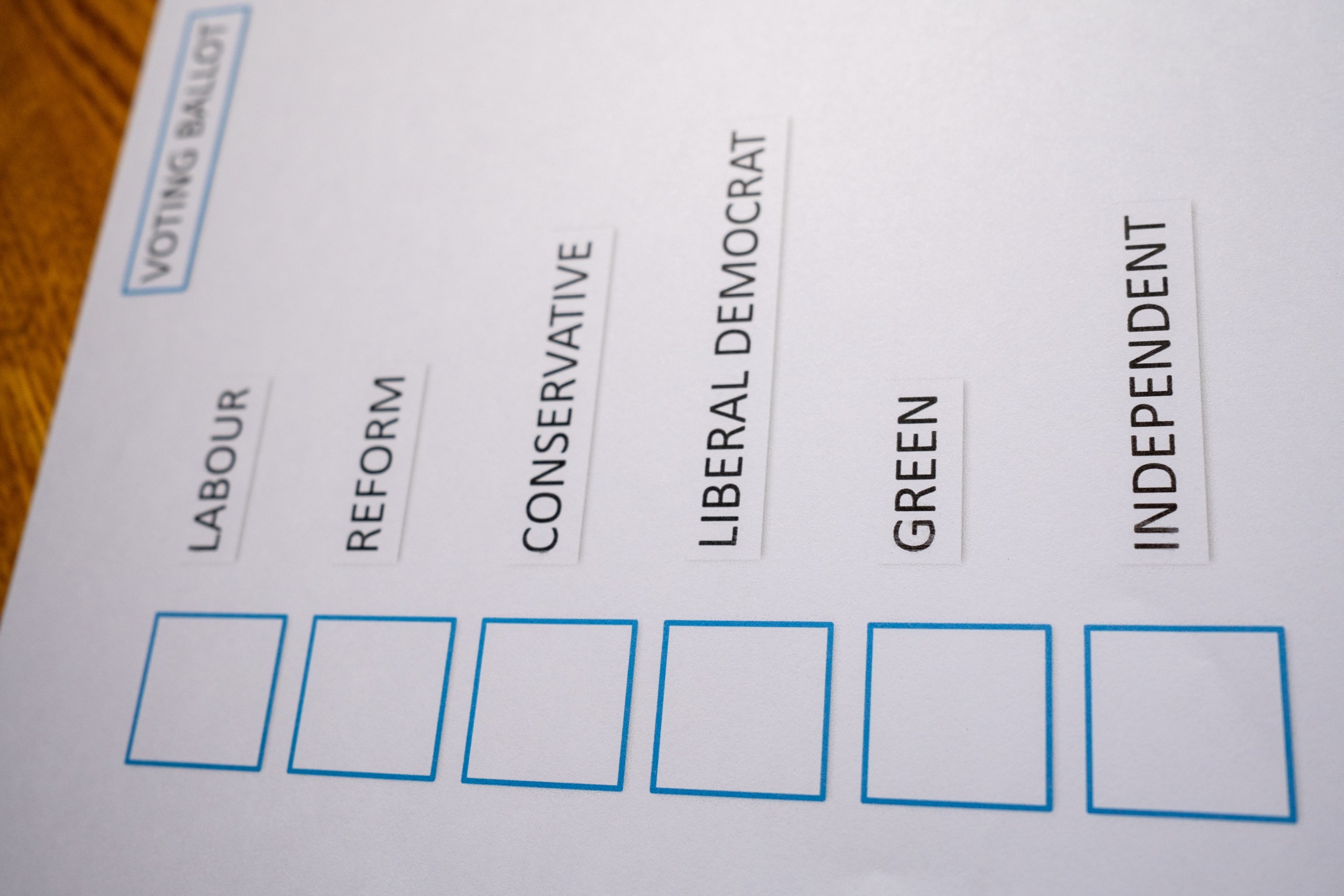
The General Election Looms and the manifestos are out
As the 2024 General Election approaches, the major political parties in the UK have unveiled their tax policies, outlining how they plan to manage the country’s finances and support economic growth. This summary provides an overview of the key tax proposals from the Conservative Party, Green Party, Labour Party, Liberal Democrats, Plaid Cymru, Reform Party, and Scottish National Party (SNP). Understanding these policies can help individuals and businesses anticipate potential changes and make informed financial decisions on voting in the General Election.
The Conservative Party
The Conservative Party has made several tax-related pledges:
- National Insurance Contributions (NIC): Reduce the employees’ class 1 NIC rate from 8% to 7% in April 2025, and to 6% in April 2027. The main rate of class 4 NIC for the self-employed will decrease by 1% annually from April 2025 and be abolished by April 2029.
- Income Tax Personal Allowance: Introduce a new age-related personal allowance from April 2025, increasing annually by the highest of prices, earnings, or 2.5%, to always exceed the new state pension amount.
- High Income Child Benefit Charge (HICBC): Reform to focus on household income, starting to claw back child benefit for household incomes over £120,000 from April 2026, with full clawback at £160,000.
- Stamp Duty Land Tax (SDLT): Make permanent the increased threshold for first-time buyers in England and Northern Ireland from £300,000 to £425,000.
- Capital Gains Tax (CGT): Introduce a temporary two-year CGT relief for landlords selling to existing tenants.
These tax cuts will be partially funded by measures against tax avoidance and evasion, expected to generate £20bn in additional receipts over five years. The Conservative Party also commits to maintaining the current income tax regime for pensions and residential property CGT, and not increasing income tax or corporation tax rates.
Their ten-point plan for small and medium-sized enterprises includes reviewing the VAT threshold and retaining key tax incentives like business asset disposal relief. There is also a commitment to maintaining research and development tax reliefs.
The Green Party
The Green Party proposes significant personal tax changes expected to raise £50bn to £70bn annually. Key proposals include:
- Wealth Tax: Applied to assets over £10m.
- Inheritance Tax (IHT): Reform to close loopholes used by the super-rich.
- CGT: Align rates with income tax and apply standard class 1 NIC rate (8%) to earnings above £50,270.
- Pension Contributions: Fix income tax relief at 20%.
They plan to encourage businesses to decarbonize through a carbon tax, projected to raise an additional £80bn by the end of the parliament, and are committed to maintaining the current corporation tax rate but will consider windfall taxes.
The Labour Party
The Labour Party aims to reduce tax avoidance and close the tax gap, investing £855m in HMRC to generate an additional £5.2bn in receipts by 2028/29. Key measures include:
- Private School Fees: Charging VAT.
- Carried Interest: Taxed as income.
- SDLT: Increase the rate for non-UK residents by 1%.
- Windfall Tax: Close loopholes for oil and gas companies.
They pledge not to increase NIC, income tax, or VAT rates, and commit to a single major fiscal event annually, capping corporation tax at 25%, and providing a clear roadmap for business taxation.
The Liberal Democrats
The Liberal Democrats’ ‘fair deal’ is funded by ten tax policies expected to generate £26.9bn by 2028-29. Key proposals include:
- Banks: Return bank surcharge and levy revenues to 2016 levels.
- Industries: New or increased taxes on digital services, water, oil and gas, and aviation.
- CGT: Reform expected to raise £5.2bn by closing loopholes, despite increasing the CGT annual exempt amount and introducing new reliefs.
- Tax Gap: Invest £1bn in HMRC to target evasion and avoidance, generating £7.2bn.
Changes are planned for employment and freelancers, including reviewing IR35 reforms, establishing a new ‘dependent contractor’ status, and increasing statutory sick pay and parental leave.
Plaid Cymru
Plaid Cymru wants the Senedd to have power over income tax bands and thresholds in Wales. UK-wide proposals include:
- Windfall Tax: Increase on oil and gas companies.
- CGT: Align rates with income tax.
- Wealth Tax: Introduction.
- Private School Fees: Charging VAT.
- Tax Evasion and Avoidance: Abolishing non-dom loopholes.
They also consider increasing NIC rates for high earners and raising the income tax personal allowance for pensioners.
The Reform Party
The Reform Party seem to be making major ground in the run up to this general election, in their “Contract with the People” they propose simplifying and cutting taxes, focusing on benefiting individuals by:
- Income Tax: Increasing the personal allowance to £20,000 and the 40% threshold to £70,000.
- IHT: Abolishing it for estates under £2m.
- SDLT: Significant cuts.
- VAT: Removing it from household energy bills.
For businesses, they plan to reduce corporation tax from 25% to 20%, and then to 15%, and increase the VAT registration threshold to £150,000. Employers’ NIC for foreign workers would increase from 13.8% to 20%, with some exceptions.
The Scottish National Party (SNP)
In this General Election manifesto, the SNP seeks full devolution of tax powers, including NIC, to align rates and thresholds with income tax in Scotland. VAT reforms include:
- Sunscreen and Caviar: Addressing VAT imbalances.
- Hospitality and Tourism: Introducing a lower VAT rate.
- Electric Vehicle Charging: Removing VAT from on-street charging.
We will continue to update you in the run up to the General Election. All information in this article should be considered general and not specific advice from the K2 Group, for help with your own individual or business circumstances, please contact us directly.
Latest Articles
Autumn 2025 BudgetUpcoming Changes to UK Audit Regulations: What You Now Need to KnowEU Implements New Digital Measures for VAT Compliance. Growing Pains Ahead?International Trade Week Presents New Opportunities and Training for BusinessesBudget 2024 Summary: Key Tax Changes and Challenges for Businesses and Individuals
